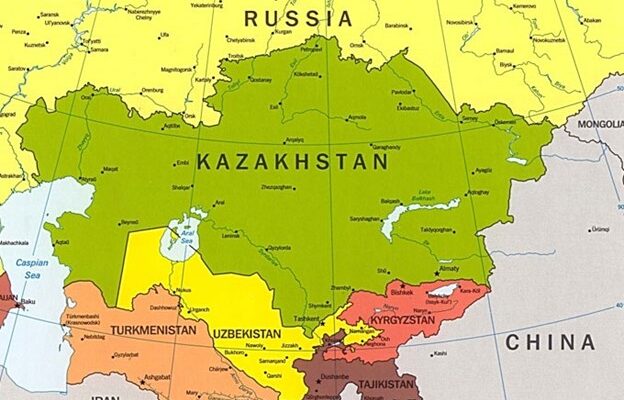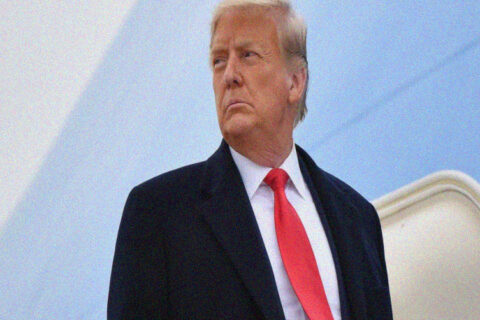Author’s Note: This is the sixth entry in a multipart series examining the decline of the American Empire and what it means for the world on a regional basis. This article will focus on the parts of Asia that have not been covered in this series.
The Pacific is not the only region in Asia where the U.S. is threatened to be pushed to the peripheries. In fact, this is the case throughout Asia. Consider the areas this series has already laid out – Russia in its Asian territories, Turkey/Iran in the Middle East, and China in the Pacific. That is already a large swath of Asia. Even if these nations do not enter into some kind of formal alliance, they will all be mutually hostile enough to the U.S. to come together. This is already happening. U.S. aggression towards Russia and Iran have pushed both nations closer to China. If Turkey does leave NATO, as I suspect they will, they will align closer to China. Whatever rivalry exists between Iran and Turkey can be patched up, at least in the short term, especially if it means keeping China as an international partner.
Central Asia (the -stans) is already under the influence of at least one of these countries. Tsarist Russia/the Soviet Union ruled over much of the region and continues to have a significant role. Iran, too, has had a great deal of influence over certain areas, particularly Uzbekistan and Turkmenistan. China and Russia both want Afghanistan’s rare earth resources and are willing to give the Taliban recognition in exchange for access to them. In 2001, only three nations would recognize the Taliban. Taliban 2.0 will likely be recognized by two of the five permanent members of the UN Security Council. I would also expect to see a newly post-NATO Turkey try to work its influence in the region. Much of Central Asia is ethnically Turkic; Erdogan, a strong nationalist and proud Turk, would adore to become the leader of a great Turkic bloc.
And, there is Pakistan. Pakistan is only barely a U.S. ally, and only in a really formal sense, as the nation allowed the use of its soil for the U.S. to launch an attack on Afghanistan after 9/11. But this was only done via bribery, Pakistan was the only nation that bordered Afghanistan that could even be bribed to allow the U.S. military on its soil. Damningly, in 2001, Pakistan was, along with Saudi Arabia and the United Arab Emirates, the only country to recognize Taliban rule of Afghanistan. Even after being bribed, Pakistan never was a good ally. The U.S. suspected, as was eventually confirmed, that Osama bin Laden was hiding in Pakistan. There was good reason for this, the average Pakistani is deeply sympathetic to Osama Bin Laden and the Taliban. Pakistan and the Taliban stronghold of southern Afghanistan shares the same Pashtun culture, and much of what makes the Taliban unique in terms of Islamic movements can be traced to Pashtun culture.
All of this is important because it means Pakistan will formally dump the U.S. the second it thinks it can, and that, along with the loss of the other -stans, with further drive the American Empire to the fringes of Asia. As has already been mentioned, I think the U.S. will maintain a strong presence in Japan and South Korea, at least for a little while longer. Indonesia may as well. I think India likely stays in the U.S. sphere of influence. Not because they like the U.S. (they don’t) but because they absolutely hate Pakistan and fear China. But this cannot last. Though the U.S. may have a presence in Japan, South Korea, India, and maybe Indonesia, by losing the core of the Asian continent, the Empire’s power in the region cannot help but to diminishes over the coming years.
The U.S. Navy is also an important consideration here. As it currently stands, the Navy is one area where the U.S. does have an advantage over China, part of which can be historically explained. The U.S. was once a British colony and, as such, inherited their naval traditions. Plus, any hope of a pre-WWII “Fortress America” depended on a strong U.S. Navy. By contrast, China, much like Russia, was always primarily a land power and the navy was even distrusted to a large degree by Imperial China, with the Ming Dynasty even banning overseas travel. This is likely the reason China has not already taken Taiwan.
But this cannot last forever. China understands its one weak point, and while its sheer advantage in land means it will win a long war, especially if they manage to unite Asia against the U.S., China wants more. China is building up its navy and is on pace to finally surpass the U.S..
The U.S. cannot remain an Asian/Pacific power for long. Driven to the peripheries, the U.S. will be forced to rely more on its Navy than ever before. But as soon as that naval superiority is broken, the American Empire won’t be able to remain a power in the region in the short term either. As for the remains of the Empire’s influence in the peripheries, India will be the first to go. It will be too isolated and does not have a strong military tradition to forge a fighting spirit to defend itself against China. India has been conquered a lot by various Turkic, Persian, Afghan, etc. invaders and I see no reason to think China will not eventually follow suit. That will leave South Korea and Japan, which are stronger U.S. allies and more stable, but I am not sure how long they can hold off China’s influence forever. If we look at the “greater Asia” region, that leaves Australia. And Australia shares an Anglo heritage with the U.S., that will naturally draw it closer to the Empire, but this is far from enough to keep the U.S. as a power in the region. We are further seeing a rapid loss of influence. The U.S. has had a play in Asia since the Spanish-American War, but this will soon be lost. It is quite one thing to lose influence that the U.S. did not have before 1991, it is quite another for the United States to lose influence over an area that it has had a presence in for over 100 years.
Technological development has changed war. I know of no one that denies this. But there are some fundamentals of war that do not change. The importance of land is one of them. People live on land. They do not live in the sea or in the air. It is possible for a nation with a decisive land disadvantage to win a war. Japan did this against Russia. But, that was only done by focusing on keeping the war short. China is not late period Tsarist Russia. There is no way to fight a short war against China, and the longer the war goes on, the greater of China’s advantage of uniting the vast majority of Asia.







Bad, Bad Uncle Sam seems fitting for this article (don’t worry, this is my second and final time to post this video here):
https://youtu.be/5ERbtDPkVsk
Great and necessary series but … where’s the series on building the NEW empire?
A very enlarged all white Confederacy 2.0
Should we all just sit on The Titanic ( as it sinks ), ever so eloquently discussing each inch it sinks … who’s responsible … what it will mean for the world … etc … etc?
This is FOUNDER time. This is PIONEER time. This is THE SOUTH’S time!
If we’re going to “converse” let’s make it count. Let’s converse about how to get off The Titanic and survive and thrive. That should be ALL we talk about.
https://www.youtube.com/watch?v=M7FVEFAsVr4
https://www.youtube.com/watch?v=5vdzu9UE9Z4
I am deeply enjoying this series.